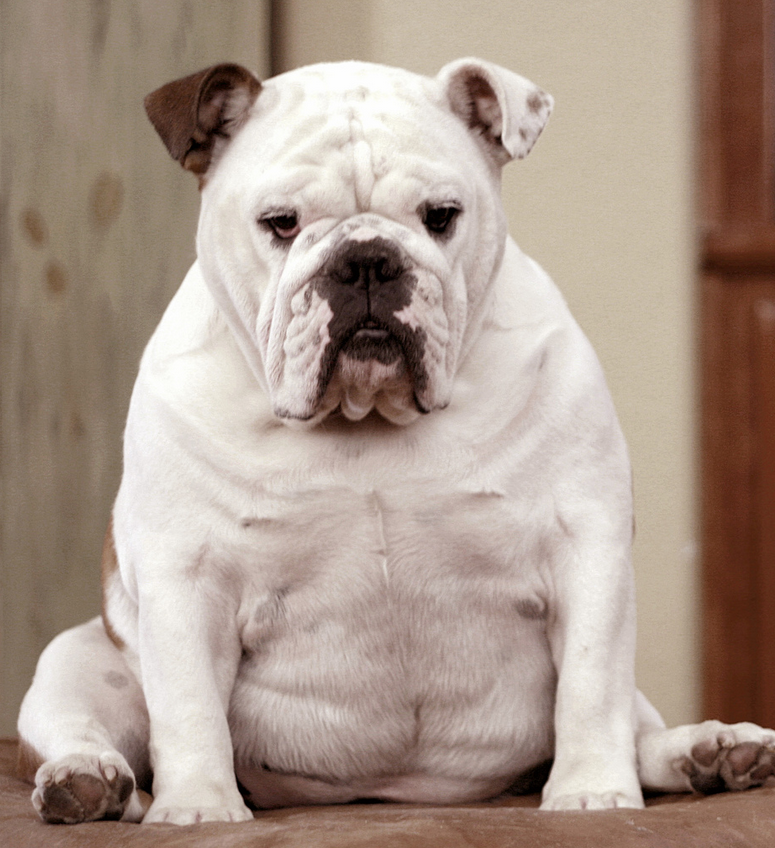Fat bulldogs are not just pets; they are companions that fill our lives with joy, laughter, and unconditional love. These lovable creatures have become increasingly popular in households around the world, with their wrinkled faces and stocky bodies capturing the hearts of many. However, while their chubby appearance may seem endearing, it is essential to understand the implications of their weight on their health and well-being. This article will delve into the unique characteristics of fat bulldogs, how to care for them, and the responsibility that comes with owning one of these charming dogs.
As we explore the world of fat bulldogs, we will also address common questions and concerns regarding their health, dietary needs, and exercise requirements. The fat bulldog has a distinct personality that often reflects their loving nature, but it's vital to ensure they maintain a healthy lifestyle to avoid potential health risks. Join us as we uncover the secrets behind keeping your fat bulldog happy and healthy while enjoying the cuddly companionship they offer.
From understanding their breed traits to discussing the best nutrition plans, this comprehensive guide will equip you with the knowledge needed to provide the best care possible for your fat bulldog. Whether you're a seasoned bulldog owner or considering bringing one into your home, this article is designed to be a valuable resource for everyone.
What Makes the Fat Bulldog So Unique?
The fat bulldog stands out due to its distinctive physical features, including a broad head, short muzzle, and stocky build. Their compact size and adorable wrinkles make them one of the most recognizable dog breeds. However, their unique appearance comes with specific health considerations, particularly related to their weight. Here are some characteristics that make the fat bulldog special:
- Affectionate and loyal companions
- Gentle disposition, making them great for families
- Low exercise requirements, perfect for apartment living
- Distinctive vocalizations and charming personalities
How Can You Tell if Your Bulldog is Overweight?
Determining whether your fat bulldog is overweight can be tricky, especially since they tend to have a naturally stocky build. However, there are several indicators to help you assess your dog’s weight:
- Rib Check: You should be able to feel your bulldog's ribs without excessive pressure.
- Waistline: When viewed from above, your bulldog should have a noticeable waist.
- Behavior: Overweight dogs may exhibit lethargy or reluctance to engage in physical activities.
What Are the Health Risks Associated with Fat Bulldogs?
Like any breed, fat bulldogs can be prone to specific health issues, many of which are exacerbated by obesity. Common health risks include:
- Joint problems, such as hip dysplasia
- Respiratory issues due to their short snouts
- Heart disease linked to excessive weight
- Diabetes resulting from poor diet and lack of exercise
How Can You Help Your Fat Bulldog Lose Weight?
Helping your fat bulldog achieve a healthy weight involves a combination of proper diet and exercise. Here are some tips to promote weight loss:
- Consult your veterinarian for a tailored diet plan.
- Switch to high-quality, lower-calorie dog food.
- Increase daily exercise routines, such as walks or playtime.
- Limit treats and opt for healthy alternatives.
Are There Specific Nutrition Needs for Fat Bulldogs?
When it comes to feeding your fat bulldog, understanding their specific nutritional needs is crucial. Here are some dietary considerations:
- High-protein, low-fat foods to support muscle maintenance.
- Fiber-rich diets to promote satiety and aid digestion.
- Hydration is essential; always ensure fresh water is available.
Can Fat Bulldogs Participate in Dog Shows?
While fat bulldogs can participate in dog shows, their weight must fall within the breed standard for competition. Judges often look for dogs that exemplify the breed's physical traits, including proper weight. Ensuring your bulldog is healthy and fit is crucial for eligibility in shows.
What Is the Average Lifespan of a Fat Bulldog?
The average lifespan of a fat bulldog is typically around 10 to 15 years, but this can vary based on health and lifestyle factors. Maintaining a healthy weight through proper diet and exercise can help extend their lifespan and improve their quality of life.
Can Fat Bulldogs Be Good Family Pets?
Absolutely! Fat bulldogs are known for their affectionate and gentle nature, making them excellent family pets. They are typically good with children and can adapt well to various living situations, including apartments. However, it's essential to ensure they receive adequate exercise and socialization to thrive in a family environment.
Personal Details and Bio Data of Bulldogs
| Attribute | Details |
|---|---|
| Breed | Bulldog |
| Average Weight | 40-50 lbs |
| Life Expectancy | 10-15 years |
| Temperament | Affectionate, Loyal, Gentle |
| Activity Level | Low to Moderate |
In conclusion, fat bulldogs are delightful companions that bring joy and love into our lives. By understanding their unique characteristics and taking proactive steps to care for them, we can ensure they live long, healthy lives. Whether you're already a proud owner of a fat bulldog or considering adding one to your family, this guide serves as a valuable resource for responsible pet ownership.


